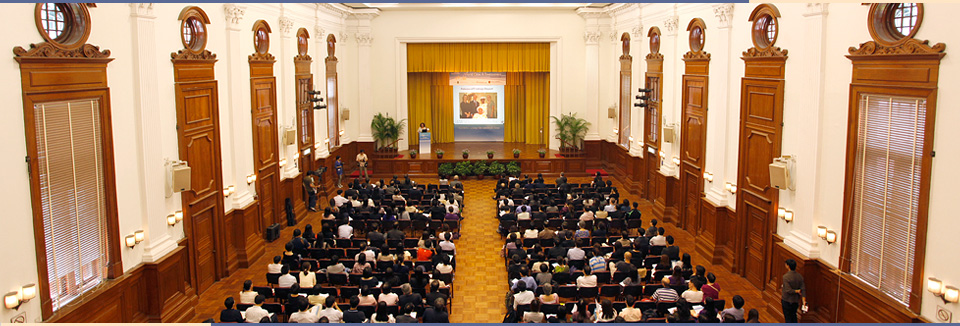|
首頁 / 流金頌寶庫 / 流金頌研討會 2010
流金頌研討會 2010
友待長者國際城市與環境

Elder-friendly communities actively involve, value and support older people, both active and frail, with infrastructure and services that effectively accommodate their changing needs.
The World Health Organization (WHO) initiated the Age-Friendly Cities movement in 2005 in response to ageing populations living in cities all over the world.
CADENZA Symposium 2010: "Age-Friendly World Cities and Environment" highlighted the WHO guidelines with respect to New York, discuss how health outcomes may be influenced by health and social care systems, neighbourhoods, and how urban design and use of information technology may contribute to making the environment more elder-friendly.
|

 |
 |
|
 Making cities age-friendly: World Health Organization guidelines and the New York experience
Making cities age-friendly: World Health Organization guidelines and the New York experience
Age-friendly New York City
Professor Ruth Finkelstein
|
|
 Ageing, health systems and health outcomes: The World Cities Project
Ageing, health systems and health outcomes: The World Cities Project
Aging, Health Systems and Health Outcomes: The World Cities Project
Professor Victor Rodwin
|
|
 Addressing the needs of older people in world cities
Addressing the needs of older people in world cities
Addressing the Needs of Older People in World Cities
Professor Michael Gusmano
|
|
 Contributions of geographic, socioeconomic, and lifestyle factors to quality of life, frailty, and mortality in elderly in hong kong
Contributions of geographic, socioeconomic, and lifestyle factors to quality of life, frailty, and mortality in elderly in hong kong
Contributions of Geographic, Socioeconomic, and Lifestyle Factors to Quality of Life, Frailty, and Mortality in Elderly in Hong Kong
Professor Jean Woo
|
|
 Neighbourhoods and health outcomes
Neighbourhoods and health outcomes
Neighbourhood and Health Outcomes
Dr Chau Pui-hing
|
|
 User friendly living environmental research and design for older persons
User friendly living environmental research and design for older persons
Designing an Age Friendly Living Environment
Dr Jackie Kwok
|
|
 Elder-friendly home environment
Elder-friendly home environment
Elder-friendly Home Environment
Dr Eric Tam
|
|
 Observation from Hong Kong compared with the UK
Observation from Hong Kong compared with the UK
Societal Age Disparities in Health Care: Observation from HK compared with the UK
Dr Benise Mak
|
|

|
|